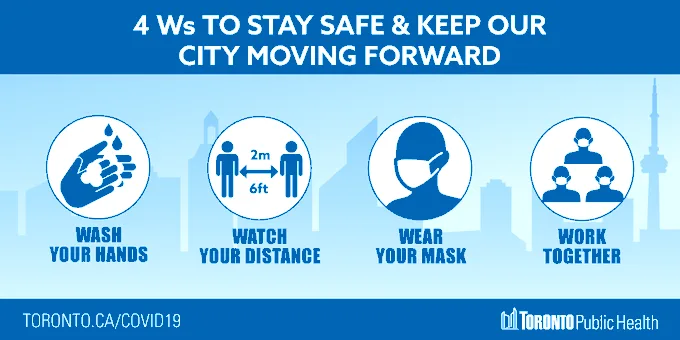Toronto – City of Toronto unveiled “Our Health, Our City: A Mental Health, Substance Use, Harm Reduction, and Treatment Strategy for Toronto.” This comprehensive strategy highlights the City’s dedication to mitigating substance use-related harms and fostering mental health and well-being for all residents of Toronto. The strategic release aligns with National Addictions Awareness Week, observed from November 19 to 25, focusing on proactive solutions to combat the adverse effects of substance use.
“Our Health, Our City” provides recommendations tailored to diverse age groups, acknowledging Toronto’s growing, aging and increasingly diverse population. The strategy is designed to address chronic illnesses while tackling specific social and health inequities, aiming to uplift marginalized groups.
Shaped by the lived experiences of Torontonians navigating mental health and substance use challenges, the strategy incorporates insights from experts, community leaders, frontline staff and City officials. These perspectives were gathered through interviews, roundtables and advisory groups and proved pivotal in shaping the strategy.
Approximately one in five Canadians face mental health challenges annually. In Toronto, there’s a concerning trend with a decrease in mental well-being. In 2021, 55 per cent of adults rated their mental health as ‘very good’ or ‘excellent,’ down from 71 per cent in 2017. Among Toronto students (grades 7-12) in 2019, only 44 per cent reported ‘very good’ or ‘excellent’ mental health.
Mental health and substance use trends worsened during the COVID-19 pandemic and had a negative impact on pre-existing health inequities. There has been an increased demand for more mental health services as waitlists are growing.
Concurrently, Toronto faces an urgent and severe crisis of drug toxicity, intensified by a hazardous, unregulated drug supply. This crisis is further magnified by a multitude of social and health inequities, including a lack of affordable housing, poverty, experiences of trauma, chronic pain and substantial barriers to accessing healthcare. Since 2015, nearly 2,900 lives have been lost in the city due to opioid-related toxicity – each death preventable.
“Our Health, Our City” outlines a number of actions across a spectrum of mental health and substance use interventions, including prevention, community support, social programming, health care, harm reduction, clinical services and treatment. The strategic actions include:
- Promoting mental health and wellbeing.
- Preventing and reducing harms and deaths related to substance use.
- Expanding access to the full continuum of high-quality, evidence-based and client-centred services to address mental health and/or substance use issues, including harm reduction and treatment supports.
- Advancing community safety and well-being for everyone.
- Improving access to housing and other social determinants of health.
- Supporting mentally healthy workplaces and optimizing the mental health of workers.
- Proactively identifying and responding to emerging mental health and substance use issues.
The introduction of “Our Health, Our City” emphasizes the City’s steadfast commitment to funding requests outlined during the Roundtable chaired by Deputy Mayor Jennifer McKelvie (Scarborough-Rouge Park) on June 2. Collaborating with emergency response teams, community leaders and health advocates, the City is actively urging the federal and provincial governments to allocate funds in support of mental health and substance use services within Toronto.
More information on the strategy is available on the City’s Our Health, Our City webpage. The Toronto Board of Health will consider the report on Monday, November 27, 2023. “Our Health, Our City is a bold plan to make our city safer and more caring by promoting better mental health and wellbeing for all. Implementing this strategy will be an enormous team effort, requiring collaboration across City divisions, community organizations, health care partners, and other government partners. Toronto is a city full of potential. My wish is that this strategy provides hope for every Torontonian. Together, we will build a healthier city where everyone belongs.” – Mayor Olivia Chow








